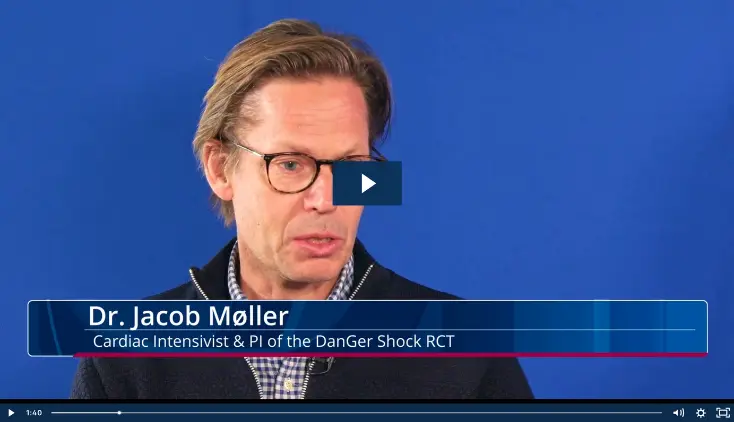ECMO, Escalation Therapy, AMI Cardiogenic Shock
From Escalation to Weaning Strategies — How to Integrate the ECMELLA Concept
Benedikt Schrage, Alexander Bernhardt, Evgenij Potapov, Letizia F. Bertoldi, Norman Mangner
Key Topics and Take Aways
- ECMELLA — the combination of Impella® devices and ECMO support—has been suggested as an approach to counteract the increase in LV afterload seen with ECMO, prevent complications during VA ECMO, and facilitate weaning from VA ECMO.
- Escalation to ECMELLA may be considered if:
- a patient has deteriorating cardiogenic shock (SCAI stage D or E) despite treatment with a micro Axial Flow Pump (mAFP), and VA ECMO is added to augment cardiac output and increase tissue perfusion and oxygenation.
- a patient in severe cardiogenic shock (SCAI stage D or E) requires immediate VA ECMO for tissue perfusion/oxygenation and mAFP to unload the LV and facilitate myocardial recovery.
- If ECMELLA does not provide sufficient LV unloading or sufficient support, the percutaneously inserted mAFP (eg. Impella CP® with SmartAssist® heart pump) can be switched to a surgically inserted mAFP (eg. Impella 5.5® with SmartAssist® heart pump) to increase LV support and facilitate VA ECMO weaning.
- The ECMELLA 2.0 single arterial access approach may help reduce vascular access related complications and improve patient mobility.
- The ongoing randomized, controlled UNLOAD-ECMO study is evaluating whether the ECMELLA approach is associated with better outcome in patients with severe cardiogenic shock.
This article describes escalation and weaning best practices for patients with cardiogenic shock supported with ECMELLA—a combination of Impella devices and extracorporeal membrane oxygenation (ECMO). The “un-physiologic” retrograde perfusion of the aorta that occurs with ECMO increases left ventricular (LV) afterload and can hamper myocardial recovery as well as result in formation of LV thrombus or severe pulmonary congestion. The addition of a mAFP such as Impella actively unloads the LV and may counteract the increase in LV afterload and may prevent complications and facilitate weaning from VA ECMO; however, it may also be associated with a higher risk of bleeding and ischemic complications. The ongoing randomized, controlled UNLOAD-ECMO study is evaluating whether the ECMELLA approach is associated with better outcome in patients with severe cardiogenic shock.
Two clinical scenarios in which escalation to ECMELLA should be considered are:
- Patient has deteriorating cardiogenic shock (SCAI stage D or E) despite treatment with a mAFP and VA ECMO is added to augment cardiac output and increase tissue perfusion and oxygenation
- Patient in severe cardiogenic shock (SCAI stage D or E) requires immediate VA ECMO for tissue perfusion/oxygenation and mAFP to unload the LV and facilitate myocardial recovery
The authors describe the concept of protected weaning for ECMELLA patients and state, “it appears to be reasonable to start weaning upon initiation of cardiac dysfunction resolution, or evidence of at least partial myocardial recovery, improvement in end-organ hypoperfusion, intravascular euvolemia, minimal intravenous inotropic support, or improved contractility on echocardiography.” They provide specific recommendations for patients with LV, RV, or biventricular failure, or prominent pulmonary disease.
“The addition of a micro-axial flow pump (mAFP), like Impella, on top of V-A ECMO for active LV unloading has been suggested as an approach to counteract on the increase in LV afterload, aiming to not only prevent complications during V-A ECMO but to facilitate weaning from V-A ECMO as well.”
This paper also discusses the surgical transition for the ECMELLA approach in which the percutaneously implanted mAFP (eg, Impella CP®) is switched to a surgically implanted mAFP (eg, Impella 5.5®) to increase LV support and facilitate VA ECMO weaning. In addition, the authors mention that the ECMELLA 2.0 single arterial access approach may help reduce vascular access related complications and improve patient mobility.
Sign Up for Latest Updates
NPS-4061



